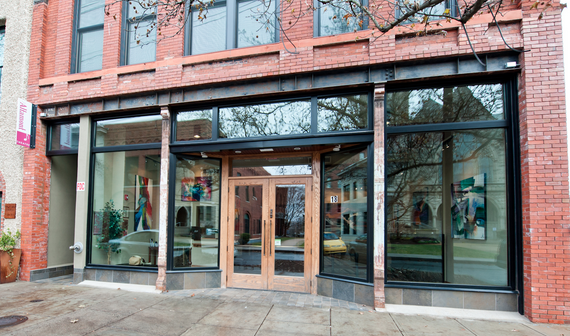Jason Sandford
Jason Sandford is a reporter, writer, blogger and photographer interested in all things Asheville.

Asheville City Council recently kicked back to committee proposed rule changes that would affect short-term rental properties.
Property owners who rent out rooms on platforms such as Airbnb have been working with city officials for more than a year to rework how the city defines a kitchen. Under current zoning regulations, a room with a kitchen cannot be used as a guest room, so folks with short-term rental properties wanted that definition loosened up. (The definition is in place to help protect property for long-term rentals for residents.)
As council members discussed the proposed changes at their Aug. 27 meeting, several expressed concerns that redefining a kitchen would open up more properties, namely those termed “accessory dwelling units,” to short-term rentals. That would have the exact opposite effect of several of the regulatory moves City Council has made over the past few years to rein in short-term rentals. So with a 5-2 vote (Councilmem Vijay Kapoor and Keith Young voted against), the issue returns to the council’s Planning and Economic Development committee.
Fining Airbnb: Councilwoman Julie Mayfield told the Buncombe County Tourism Development Authority at its August meeting that the city was moving ahead with crafting an ordinance to fine Airbnb and other online platforms for listing properties that don’t have proper permits to operate. City officials have invited representatives from Airbnb and other online platforms to talk about the issue, Mayfield said, with no results. “We need them to be that front line to help our homestay hosts be compliant” with city rules she emphasized. The proposed fine: $500 a day for every illegal listing.
Mayfield also said city officials are keeping a close eye on proposed legislation in the N.C. General Assembly in Raleigh that would severely limit local ordinances regulating short-term rentals. Such legislation “would open door to absolute destruction of most of our neighborhoods,” Mayfield said. The stakes are high for Asheville, she said, urging folks to contact “the Chucks,” N.C. Rep. Chuck McGrady and N.C. Sen. Chuck Edwards to express concerns.
Meantime, the Asheville residents who rent out rooms via Airbnb and other platforms are getting more organized. Jackson Tierney, an organizer of the Asheville Homestay Network, delivered an update about the group’s activities to the Buncombe County TDA (during the same meeting at which Mayfield offered her updates on short-term rental issues). Tierney told the group that he and his wife have been renting out a room of their Montford home for the past four years or so. The Asheville Homestay Network is made up of 801 homestay permit holders in Asheville, has nine people on a leadership team and has recently organized committees and started holding monthly meetings, he said. Group members share best practices and want to be involved in the city’s rule-making process, Tierney said.
Tierney shared a few results from two recent surveys of Asheville Homestay Network members: 71 percent say they need the income to pay their mortgage; 42 percent said they would have to move out of the city without the income; and 1 in 5 said they’re on Social Security. The surveys were conducted via Survey Monkey and received just fewer than 400 responses, he said. “This is a huge economic engine,” he told the TDA. Some 93 percent of homestay operators in Asheville said their neighbors were aware of the short-term rental activity; and about 3 percent reported receiving a complaint, mostly around parking, he added.
On the issue of illegal short-term rentals in the city, Tierney said the quickest was to address that issue through the online platforms. He estimated that there were at least 150 illegal listings in Asheville. Other cities, namely San Francisco, have passed similar ordinances, and the online platforms have responded by taking down offending listings, he said. (Right now, the city contracts with a company that works to track down illegal listings and report them to city officials.)
Regarding possible legislation in Raleigh limiting cities’ regulatory powers in the area of short-term rentals, Tierney said “we don’t want whole house rentals in neighborhoods” (which are currently are banned in the city). The Asheville Homestay Network looked forward to continue working with city officials, he concluded.























